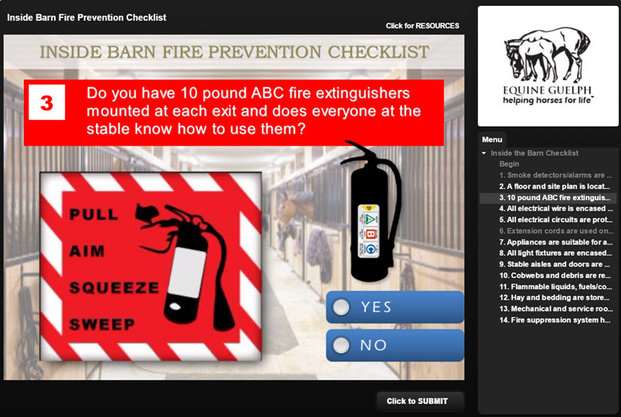Tool can help barn owners assess safety concerns
By Diego Flammini
Assistant Editor, North American Content
Farms.com
In the first half of 2016, many Ontario farms battled barn fires. In the process, the farmers lost assets and had to face rebuilding decisions.
Some of these fires occurred in horse barns, so Equine Guelph has developed an online tool to help owners assess their barns for safety concerns.
The Barn Fire Prevention tool asks farmers 20 questions about their barns. The questions are accompanied by photos to give farmers a real look at potential safety issues.

Equine Guelph's online barn fire prevention tool.
Photo: Equine Guelph
The tool also allows farmers to assess the inside and outside of their barns to ensure the area is safe.
"If you have a farm, you have combustibles that need to be stored properly, electrical wiring that requires proper installation and maintenance and a host of appliances that may or may not be safe for use," Gayle Ecker, director of Equine Guelph, said in a release. "The key to reducing the risk of fire is education focusing on prevention.”
The tool also links to resources including the leading causes of barn fires, principles of safety and barn design, and recorded interviews with expers that can help farmers navigate safety in their barns.